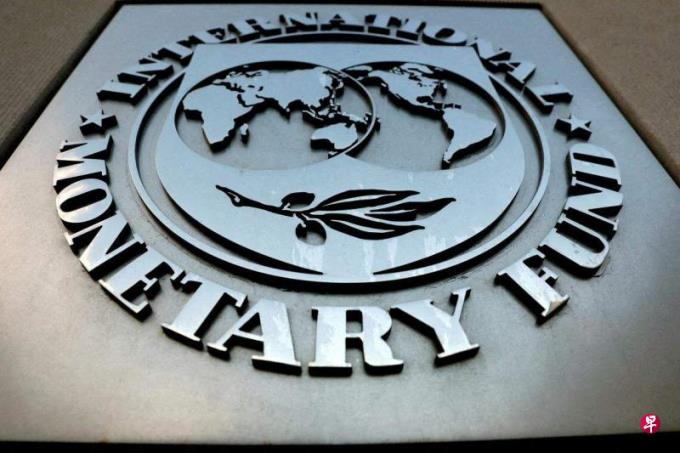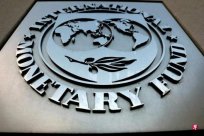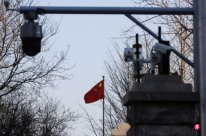
The Harbin conflict is at the time of the International Monetary Fund Organization (IMF) when the World Economic Outlook Report in the second half of 2023.The Harbin conflict has brought more uncertainty to the slowdown of the global economy. Hamas's inhumane terrorism has deepened the suffering of the people of the Gaza Strip; and Israel is determined to eliminate Hamas's actions and give the Harbin conflict to upgrade whether the Harbin conflict is upgraded to upgradeIt brought uncertainty to a Middle East War.
Entering 2023, the global economy is moving slowly.According to IMF forecasts, global economic growth will slow from 3.5%last year to 3%this year, and next year to 2.9%, far lower than the historical average economic growth rate.In developed economies, the US economic growth rate is raised due to strong consumption and investment.IMF President Georkeva once said, "Only the United States has fully recovered."China's economic growth is very resistant, and the growth rate of Brazil, India and Russia has been raised.
Global economic prospects are facing three major risks.The first risk is inflation.Although the overall inflation of most economies has been seen, core inflation (excluding food and energy) has been proven to be more sticky.The latest data from most economies in the world show that the rise in food and energy wholesale during 2022 is currently falling.The global inflation rate continued to decline, from 9.2%year -on -year from 2022, decreased to 5.9%this year, and fell to 4.8%in 2024.
The greatest uncertainty brought to the global economy by Harbin conflict is oil prices.Iran has a close relationship with Hamas. If the relationship between Israel and Iran with Harbin conflicts, it will inevitably lead to rising oil prices.The Wall Street Journal reported that Iranian crude oil exports exceeded 2 million barrels. In the past six months, Iran's oil supply has increased significantly due to weak sanctions.However, in view of the relationship between Iran and Hamas, the US government is likely to begin more stringent sanctions on Iranian oil exports.This will lead to the tightening of the supply of oil markets.
The possibility of Iran's directly involved in conflict is not existing.Over the past few years, the Iranian army has increasingly harassed the international ships of the Hormuz Strait, which will cause trouble to the world, because 30%of the world's oil must pass through the strait.According to the US Department of Defense, Iran has attacked or seized about 20 merchant ships in the past two years.In August, the Pentagon dispatched about 3,000 soldiers to the Holmus Strait.Germany, France, Italy, and other European countries have provided escort for 162 merchant ships this year.
The ships that cross the Strait of Holmus are usually the most obvious indicators for the upgrading of the Iranian situation. If the insurance company believes that such violence may occur, the shipowner will have to change the ship to other longer voyages.This will lead to chaos and prices soaring the oil market.On October 9, global crude oil benchmark Brent futures rose 4.2%, and the US WTI futures rose 4.3%to $ 86.38 per barrel (about S $ 118.20).IMF Chief Economist Gulinshas said that oil prices will rise by 10%, economic growth next year will weaken 0.15 percentage points, and the inflation rate will increase by 0.4 percentage points.
The second risk is the stability of the financial market.In the past two years, central banks from all over the world have continued to raise interest rates to suppress inflation, and the interest rate hike has not been completed.Since the end of 2021, the average rate of interest rate hikes of developed economies has been about 400 basis points, and the average interest rate hike of emerging market economies is about 650 basis points.The ability of individuals and corporate borrowers to repay debt has decreased, which means that credit risk has risen.The rise in debt costs is the expected result of a tightening monetary policy.Higher interest rates may exacerbate the vulnerability of the financial market and lead to surge in breach of contract.
IMF's latest global financial stability report shows that the number of small and medium -sized enterprises in developed market economies and emerging market economies has continued to increase, and their cash is almost not enough to pay interest.The default rate of leverage loan market is rising, and companies with weak financial strength are borrowing in the market.As more than 5.5 trillion US dollars of corporate debt expires, these problems may further deteriorate in the next year.The excess savings of developed economies have steadily decreased steadily at the peak level of 4%to 8%of GDP in early 2022.Credit cards and car loan arrears have signs of rise.
May change the Federal Reserve interest rate policy
The tightening of the financial market has put the bank's pressure on high credit risk.Surveys in some countries have shown that bank loans have slowed down, and the risk of borrowers' risks is a key reason.In the case of high inflation, high interest rates, and the decline of the global economy, many banks will lose a lot of equity capital.If the market value of banks falls below the balance sheet of the balance sheet, investors and depositors will closely pay attention to the prospect of banks and bring financing issues to weak banks.Non -bank financial intermediaries are also fragile.
Harbin conflict may change the US interest rate policy.The Wall Street Journal reports that federal fund interest rate traders believe that the Fed's possibility of further action has increased in the remaining time this year.The probability of traders predicting the suspension of the Fed in November to 88.5%.This will keep the Fed's main interest rate target range at 5.25%to 5.5%of the 22 -year high.In addition, the US Treasury bond yields have closed sharply, so federal fund interest rate traders believe that the Fed is likely to not raise interest rates again.
The third risk is the intertwined between geopolitics and trade protectionism, hindering international trade and investment.International trade is an engine of global economic growth, but this engine is weakening.The World Trade Organization warned in an annual report published on September 12 that "the preliminary signs of trade and commercial fragmentation" is emerging and "threatening the growth and development of international trade" globally.The Sino -US strategic competition and the Russian and Uchia war have prompted multinational companies to consider geographical politics as a variable, and the Harbin conflict will promote the more and more attach importance to geopolitical politics.
Under the consideration of geopolitical politics, the "Biden Economics" launched by the United States implemented a high -business policy containing protectionism with the help of industrial policies.China has long adhered to a series of industrial policies including trade protectionism, which has caused criticism from Western countries.
The EU's anti -subsidy survey on China's electric vehicles is a result of China's extensive subsidy policy.According to the Financial Times report, the European Union should announce an anti -dumping investigation of China Iron and Steel by the end of October.The positions held by China in the face of the two investigations of the European Union must be resolutely resisted, which will bring uncertainty to the China -Europe trade.After China's economic rise, it has increasingly used trade instruments as a means to achieve political goals, which objectively distorted the free flow of trade and investment.The Ministry of Commerce of Mainland China announced that the trade barrier survey of Taiwan will be extended for three months until the deadline on January 12 next year (compiled: Taiwan election will be held on January 13 next year), which is obviously using trade to leverage politics with politicsEssence
Harvard scholar Dani Rodrik is geopolitics in the real enemy of the global economy, rather than protectiveism that the biggest risk facing the global economy comes from competition between China and the United States. This competition may be possible.Drag everyone.Rodrick's statement is in line with the current global economy. In a world where it is more uncertain and more likely to impact, international cooperation is backward.The world is witnessing the rise of fragmentedization, the increase in trade and investment barriers is increasing, and the extreme form is economic groupization, and global economicization is evolving in another way.
Although the senior executives of China and the United States have appeared in good signs in the near future, the conflict with Harbin has a negative impact on Sino -US strategic competition.China does not condemn Hamas to kill innocence, and once again become a stealth station team similar to the Russian and Ukraine War.The Iran and Syria behind Hamas have close relationships with China, and this relationship is definitely an obstacle to the active improvement of Sino -US relations.The more and more split world makes the camps between major countries divide very clearlyGeographic politics has become a key factor that hinders global economic development.Sino -US trade no longer has become a catalyst of peace, and Sino -US strategic competition has to change the global supply chain.
The author is a commentator in Shanghai, China




